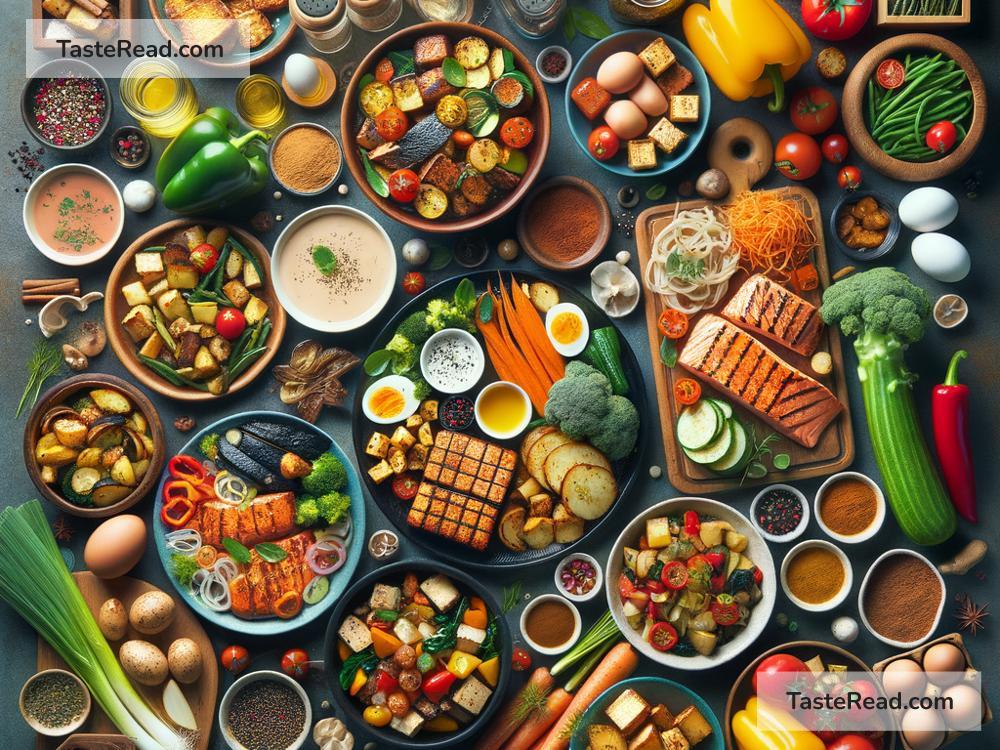The Impact of Cooking Methods on Nutrient Retention
Cooking is an essential part of preparing food, but did you know that the way we cook can affect how healthy our meals are? Food contains important nutrients like vitamins, minerals, and antioxidants that our bodies need to stay strong and healthy. However, some cooking methods can destroy these nutrients, while others can help keep them intact. In this blog, we’ll explore how different cooking techniques impact nutrient retention and offer tips on how to make your meals healthier.
Why Nutrient Retention Matters
Nutrients are like the building blocks of health. Vitamins like vitamin C boost immunity, minerals like calcium strengthen bones, and proteins help repair tissues. When we cook food, it changes in texture, flavor, and appearance, but it also goes through chemical changes. Cooking can sometimes break down nutrients, reducing the health benefits of the food. Learning which cooking methods are better for nutrient retention can help us make smarter food choices.
How Cooking Affects Nutrients
There are two main ways cooking can impact nutrients:
- Heat Sensitivity: Some nutrients, like vitamin C and B vitamins, are easily destroyed by high heat.
- Water Solubility: Vitamins like vitamin C and some B vitamins dissolve in water, meaning they can be lost if we boil or soak food for too long.
At the same time, cooking can make certain nutrients more available or easier to digest. For example, cooking carrots and tomatoes increases the levels of nutrients like beta-carotene and lycopene, which are antioxidants good for your health.
Common Cooking Methods and Their Impact
Let’s take a closer look at some common cooking methods and how they affect nutrient retention:
1. Boiling
Boiling involves cooking food in water at high temperatures. While it’s quick and easy, nutrients that dissolve in water, like vitamin C and B vitamins, often leach out into the cooking water. For example, vegetables like broccoli or spinach can lose a significant portion of their water-soluble vitamins if boiled for too long. If you want to retain nutrients, try using the leftover cooking water in soups or sauces.
2. Steaming
Steaming is one of the healthiest ways to cook food. Since the food is cooked over steam rather than submerged in water, fewer nutrients are lost. Steaming is especially great for vegetables because it helps maintain their vitamins and keeps them crisp and flavorful. For example, steamed broccoli retains much more vitamin C compared to boiled broccoli.
3. Roasting and Baking
Roasting and baking use dry heat, which generally preserves more nutrients than boiling. However, high temperatures over a long period can reduce heat-sensitive nutrients like vitamin C. It’s a good idea to roast vegetables at moderate temperatures for shorter cooking times to minimize nutrient loss.
4. Frying
Frying involves cooking food in oil at high temperatures. Unfortunately, this method can destroy heat-sensitive vitamins and add extra fat and calories to your meal. Deep frying, in particular, is not ideal for nutrient retention, as the high heat can break down antioxidants and other beneficial compounds in food. Using healthier oils like olive oil and shallow frying at lower temperatures can help keep more nutrients intact.
5. Microwaving
Microwaving is often overlooked, but it’s actually one of the best methods for nutrient retention. Foods cooked in a microwave require less time and water, meaning fewer nutrients leach out. Microwaving is especially effective for vegetables and may even preserve more nutrients than boiling or frying.
6. Grilling
Grilling can preserve nutrients while adding a delicious smoky flavor to food. However, over-grilling or cooking at very high temperatures can break down vitamins and may create harmful compounds, like charred areas on meat. To keep grilling healthy, avoid burning food, and use moderate heat.
Tips for Maximum Nutrient Retention
Here are some simple tips you can follow to minimize nutrient loss while cooking:
- Cook for Short Periods: The longer food is exposed to heat, the more nutrients are lost. Try to cook food just until it’s done.
- Use Less Water: If you’re boiling or steaming vegetables, use as little water as possible to avoid nutrient loss.
- Eat Raw When Possible: Some foods, like fruits, salads, and leafy greens, are best eaten raw to preserve their full nutrient content.
- Don’t Overcook: Overcooking can destroy nutrients. Cook food to the point where it’s tender but not mushy.
- Reuse Cooking Water: Nutrients that leach into water can still be recovered. Use it for soups, stews, or sauces.
Final Thoughts
Cooking is an important step in preparing food, but it’s equally important to consider how it affects nutrients. While some methods, like boiling or frying, can reduce nutrient levels, techniques like steaming, microwaving, and grilling can help retain them. By making small changes to the way you cook, you can ensure that your meals are both delicious and packed with essential nutrients.
Next time you cook, think about the method you’re using and aim to preserve as much of the natural goodness in your food as possible. After all, healthy cooking leads to healthy living!


